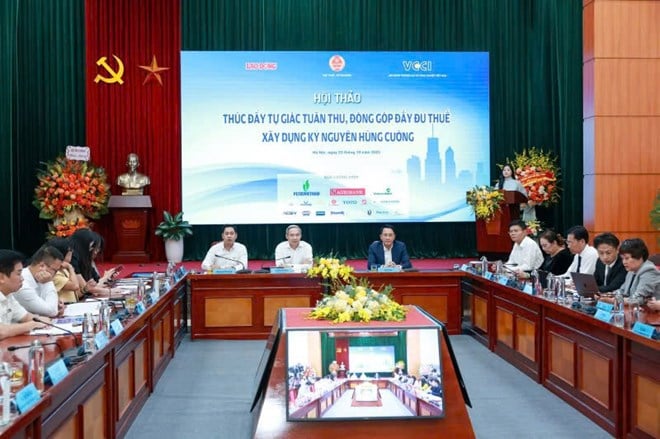
Challenges in improving tax compliance of business households
Speaking at the workshop "Promoting voluntary compliance and full tax payment - building a powerful era" organized by Lao Dong newspaper in collaboration with the Tax Department ( Ministry of Finance ) and VCCI on the afternoon of October 23, Mr. Mai Son - Deputy Director of the Tax Department said that the individual business household sector (especially in the fields of food, services, and online business) is still a group with many challenges in improving voluntary compliance.
According to Mr. Mai Son, most individual households are small business owners, elderly, have little habit of keeping accounting books and are afraid of accessing administrative procedures, especially electronic procedures.
“Through dialogue, we found that they are very concerned about having to be transparent about revenue, use electronic invoices, and keep complete records. Many people worry that revenue transparency means that all activities are 'seen' and easily inspected,” said Mr. Mai Son. In fact, the habit of consumers “not taking invoices” makes it even harder for businesses to feel motivated to issue invoices according to regulations.
“The Tax Department understands that most of these business households want to comply but are limited in knowledge, skills and are hesitant. This is a group that really needs continued support, dedicated guidance, and 'hand-holding' so that they can confidently accompany the Tax Department on the path of transparency and modernization,” Mr. Mai Son shared.
However, there is also a small group of taxpayers who intentionally violate tax laws such as: false declaration, tax evasion, illegal invoice trading or collusion. "This group is small but has a huge impact. If not detected and strictly handled, it will undermine the fairness and transparency of the law, as well as trust and consensus in society," said a representative of the Tax Department.
According to Mr. Mai Son, the Tax sector has been closely coordinating with functional agencies to detect, investigate, and strictly handle violations, including criminal prosecution, with the "principle of zero tolerance for fraudulent behavior and no forbidden zones in handling violations".
Strengthen trust and increase voluntary compliance
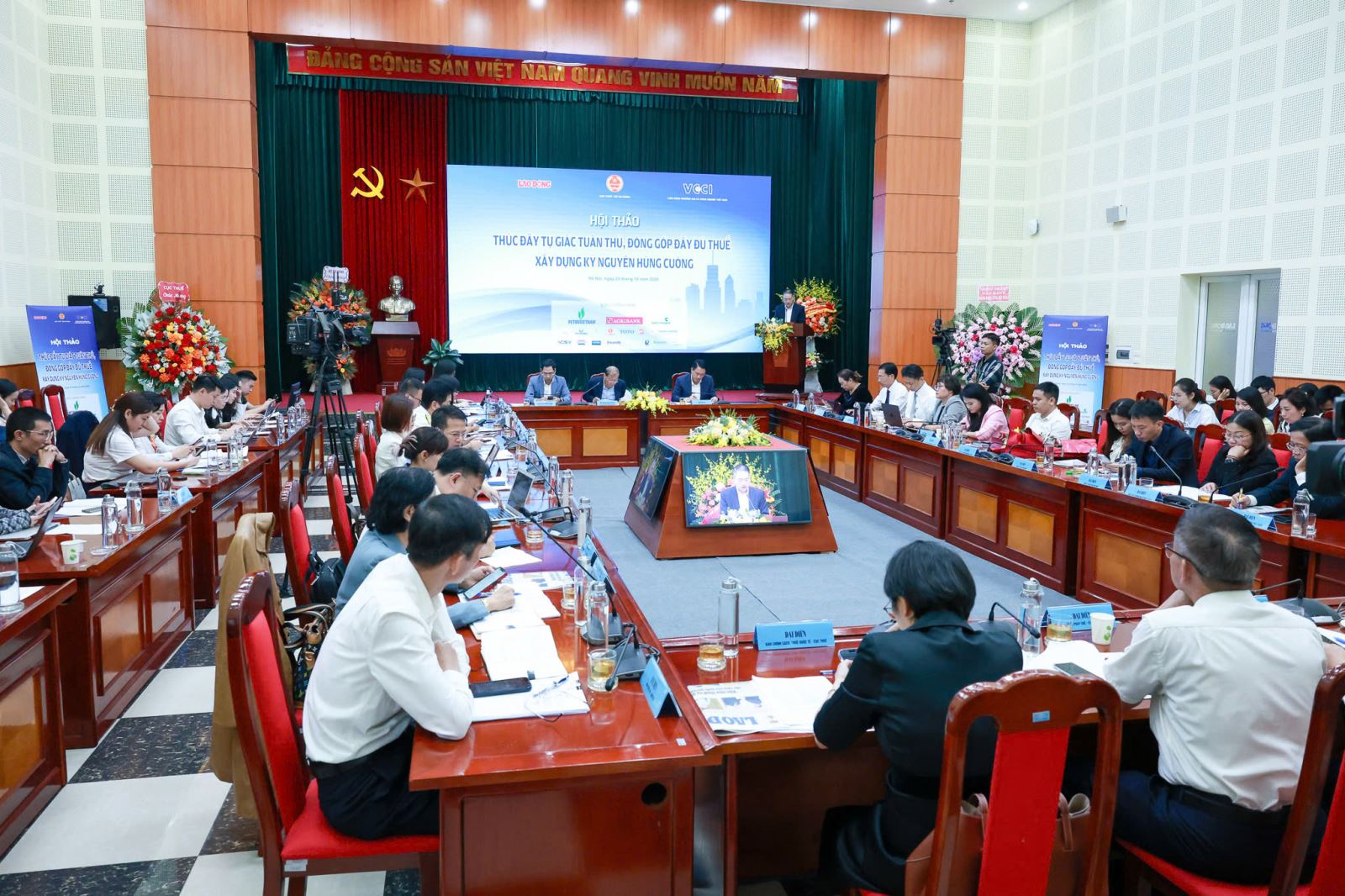
Assessing the new context, Mr. Mai Son said that the Tax sector is facing many great demands and challenges regarding the pressure to increase budget revenue; the emergence of new types of business such as e-commerce, digital economy , cross-border business, and the requirement to innovate management methods based on high technology and big data. "In response to these demands, the Tax sector has identified key directions and solutions to strengthen social trust and improve voluntary compliance," said the Deputy Director of the Tax Department.
Accordingly, the Tax sector continues to improve tax laws and policies towards transparency, simplicity, and ease of understanding, creating convenience for taxpayers; review and reform will be associated with the goal of increasing effectiveness, efficiency, conformity with international practices and promoting digital transformation.
In addition, digital transformation and modernization of tax management are being promoted with big data. The Tax sector is building a data ecosystem connecting tax authorities and ministries and branches to form an open tax management system, helping taxpayers avoid providing duplicate information, while creating a mentality of "the Tax authority knows everything", encouraging accurate declarations from the beginning.
The processes of registration, declaration, payment, refund and inspection will be seamlessly integrated; at the same time, a new generation information technology system will be applied - the "backbone" of smart electronic tax management, allowing centralized processing, data-based decision making and risk management.
For new startups or individual households, the Tax Department will organize "hands-on" support, providing handbooks, instructional videos , and AI chatbot applications so that taxpayers can look up, declare, and pay taxes easily and accurately.
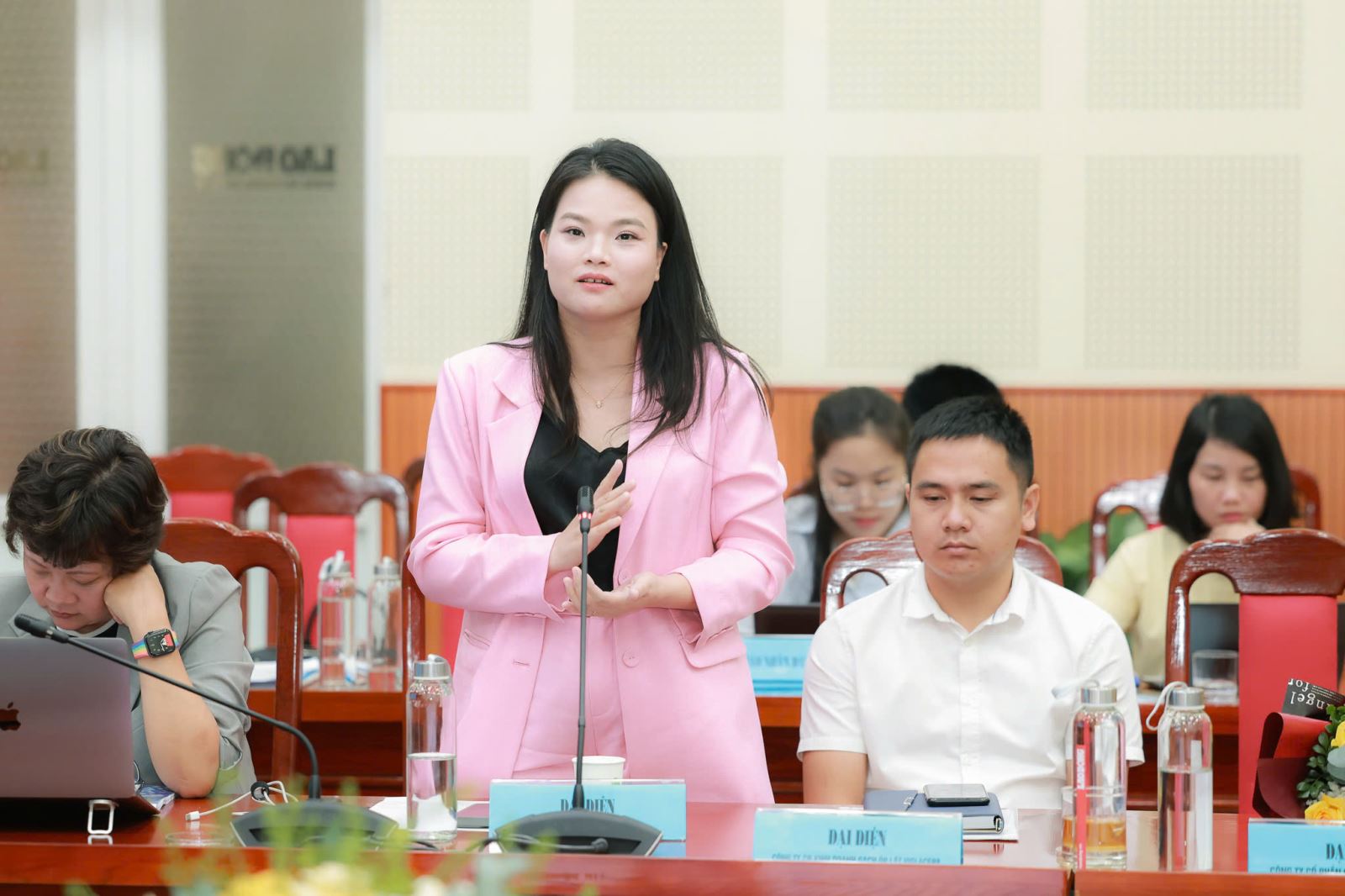
In the process of accompanying business households, Ms. Bui Thi Trang, Director of Retail Solutions, MISA Joint Stock Company, said: "In order for business households to voluntarily fulfill their tax obligations, it is important that they clearly understand what they need to do; it must be easy to do; and at the same time, know the benefits of doing it right and the risks of doing it wrong. Technology is the factor that helps business households easily comply with tax obligations."
MISA has redesigned its software solutions, aiming to simplify and integrate the entire process. "Previously, operations such as tax declaration, invoicing, and accounting records were often separate, causing difficulties for users. Now, on the Company's platform, businesses can perform the entire process right on one application: from sales, invoice issuance, to when the declaration period comes, the system will automatically remind and synthesize input and output data to form a tax declaration. After that, the software also suggests accounting records in accordance with State regulations," Ms. Bui Thi Trang shared.
This unit believes that data connection and automation of these steps helps businesses not to forget or miss any tasks, reduce manual operations, and especially make tax compliance easier.
Compliance risk management
Speaking at the workshop, Mr. Frank Van Brunschot, senior economist, Fiscal Department, International Monetary Fund (IMF) - said that Vietnam's tax-to-GDP ratio will reach 13.1% in 2024, lower than the IMF's minimum recommended threshold of 15-16% to ensure sustainable growth. In the context of narrowing global fiscal space, increasing tax rates becomes difficult to implement, so Vietnam's strategic solution is to strengthen compliance risk management to effectively mobilize domestic revenue sources.
According to Mr. Brunschot, compliance risk management is not just a technical tool but a strategic approach that helps tax authorities allocate resources more intelligently, target high-risk groups and strengthen taxpayer trust. Many countries from Australia to Albania, Poland or the Philippines have applied this model to increase revenue efficiency, reduce administrative costs and improve taxpayer satisfaction.
“Compliance risk management is a journey that starts with data, but there is no need to wait for perfection. It is important to start early, learn gradually and embed risk management into the institution,” said Mr. Frank Van Brunschot.
According to the IMF representative, immediate actions that Vietnam can take include: Expanding risk management beyond the tourism pilot sector; investing in integrated data systems, especially third-party data; and building a culture of risk-based thinking throughout the tax system.
Vietnam is well-positioned to lead the way in this reform, Mr Brunschot stressed. The restructuring of the tax system and the implementation of a pilot plan for compliance management in the tourism sector are important steps. However, the core is to build “a fair tax system – where those who comply are not disadvantaged compared to those who shirk their obligations”.
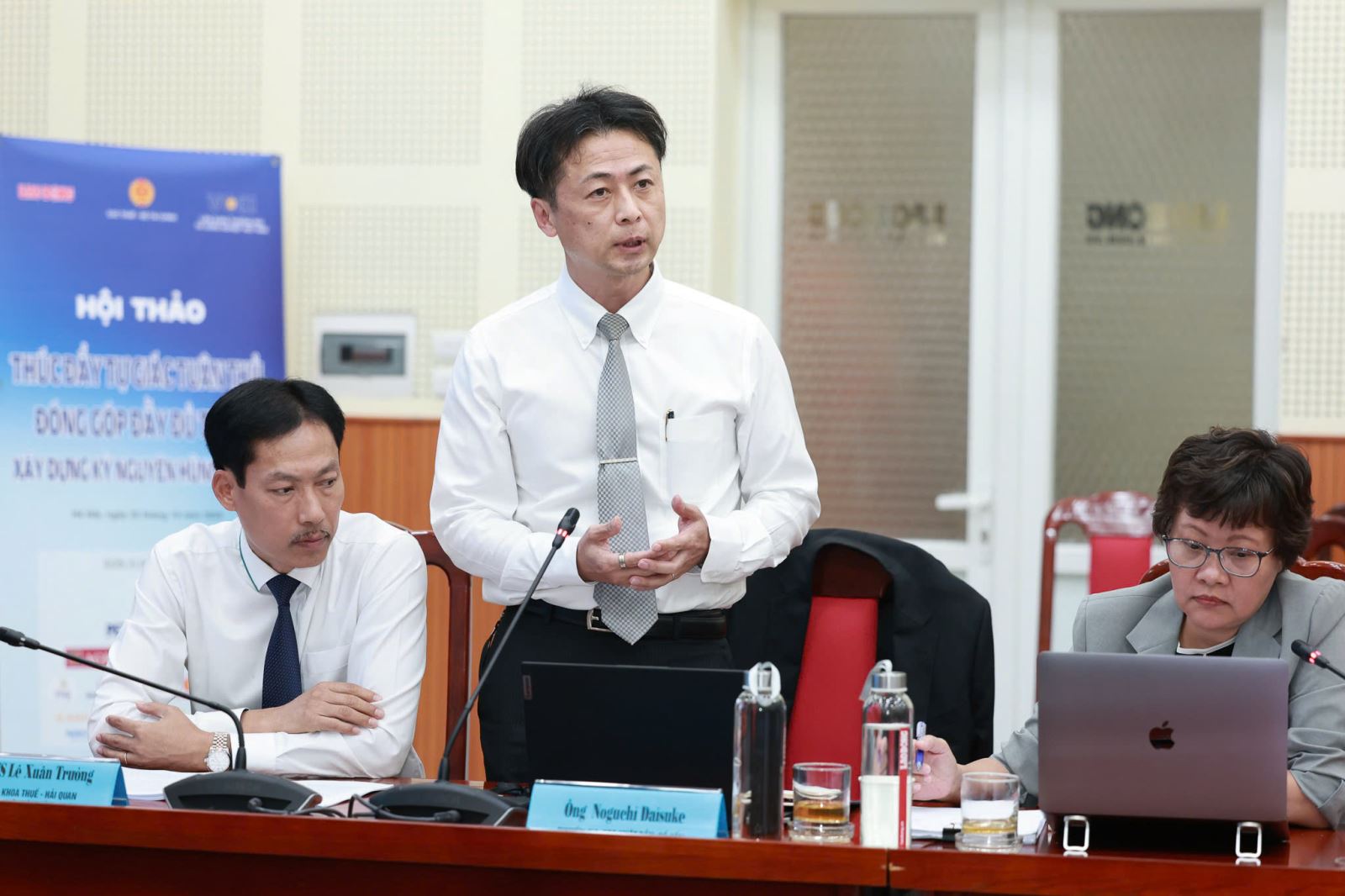
From a similar perspective, Mr. Noguchi Daisuke, Chief Advisor of the JICA Tax Project, said that Japan's experience shows that "trust is a decisive factor in maintaining voluntary compliance". Japan has formed a culture of self-declaration and self-payment of taxes on a solid legal foundation, in parallel with tax education, transparency of procedures and development of a network of consulting agents to support taxpayers.
According to Mr. Noguchi, Vietnam is on the right track in promoting digital transformation and perfecting systems such as e-invoices, e-Tax Mobile and information portals for foreign suppliers. However, to increase self-awareness, more support is needed for the small business sector and individual business households – groups that are vulnerable to risks in declaration, bookkeeping and technology access. “Every small error in declaration can make them lose confidence in the system, so the Tax authority needs to provide clear guidance and timely feedback,” the Chief Advisor of the JICA Tax Project emphasized.
While in the past, tax activities were mainly reactive and passive, now businesses can take advantage of tax data to manage risks, optimize costs and strengthen investor confidence.
According to Deloitte's 2025 global survey of more than 1,100 finance and tax leaders in 28 countries, 82% believe that tax disclosure requirements will increase sharply in the next 2-3 years, 86% identify digital transformation and automation as top priorities, and 50% consider sustainable tax governance as a foundation for long-term development.
These figures reflect a clear trend: tax compliance and transparency are now a measure of corporate reputation.
According to the Tax Department, in the first 9 months of 2025, there was a positive transformation: more than 18,500 business households paying lump-sum tax switched to the declaration method, nearly 2,530 households converted to the enterprise model. Notably, 98% of declaring business households have made electronic tax declaration and payment, and over 133,000 households have registered to use electronic invoices.
The above figures show the rapid preparation for the journey to eliminate lump-sum tax in line with the spirit of implementing Resolution No. 68-NQ/TW dated May 4, 2025 of the Politburo, Resolution No. 198/2025/QH15 of the National Assembly, Resolution No. 138/NQ-CP and 139/NQ-CP of the Government on private economic development. The Ministry of Finance has issued the Project "Converting the model and method of tax management for business households when eliminating lump-sum tax" attached to Decision No. 3389/QD-BTC.
Source: https://baotintuc.vn/kinh-te/van-con-khoang-trong-trong-quan-ly-tuan-thu-thue-20251023172557864.htm


![[Photo] Prime Minister Pham Minh Chinh chairs meeting on railway projects](https://vphoto.vietnam.vn/thumb/1200x675/vietnam/resource/IMAGE/2025/10/23/1761206277171_dsc-9703-jpg.webp)

![[Photo] President Luong Cuong holds talks with South African President Matamela Cyril Ramaphosa](https://vphoto.vietnam.vn/thumb/1200x675/vietnam/resource/IMAGE/2025/10/23/1761221878741_ndo_br_1-8416-jpg.webp)

![[Photo] Prime Minister Pham Minh Chinh meets with South African President Matamela Cyril Ramaphosa](https://vphoto.vietnam.vn/thumb/1200x675/vietnam/resource/IMAGE/2025/10/23/1761226081024_dsc-9845-jpg.webp)





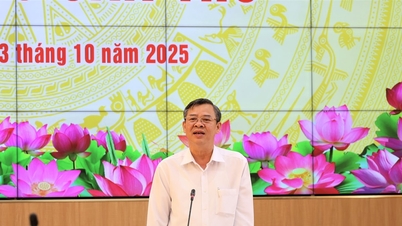
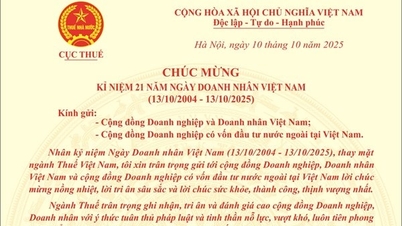





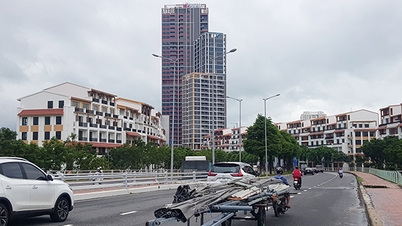




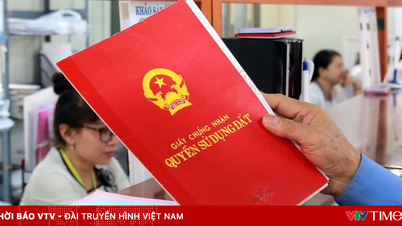







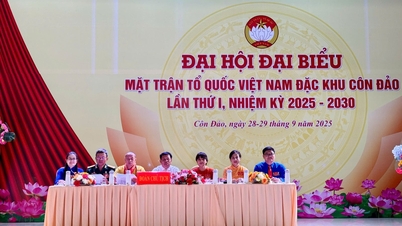
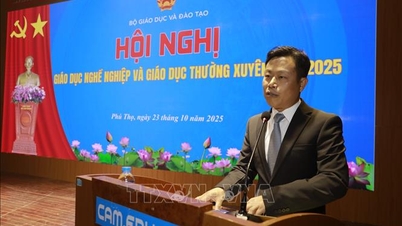






































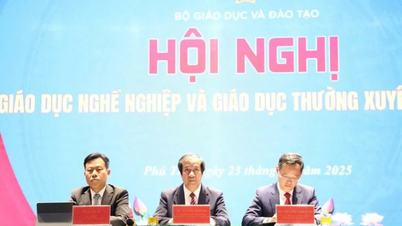

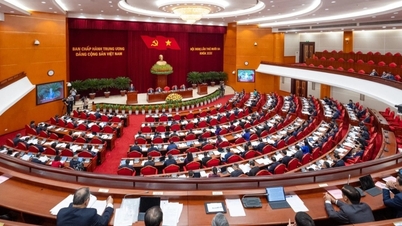


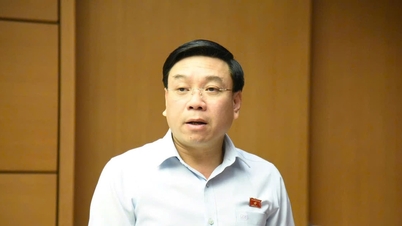


































Comment (0)